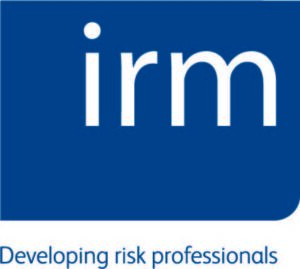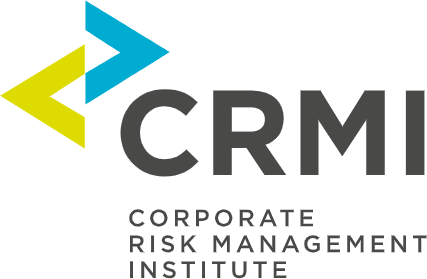Our risk management qualifications give you the broad knowledge and the practical skills you need to manage risks.
Our qualifications include:


EXECUTIVE EDUCATION TRAINING COURSE IN RISK MANAGEMENT FOR INSURANCE AND REINSURANCE




– To provide a framework for understanding the fundamentals of risk management within the insurance and reinsurance industry.
– To explore real-world examples and learn techniques needed to identify, analyze, and respond to a variety of risks, both internal and external to companies within the industry.
– To understand the effects and rationale for designing an effective risk management strategy and alignment with the organization’s corporate governance principles and regulations.
– To learn how to develop Own Risk and Solvency Assessment (ORSA) reports for insurance companies along with recovery resolution plans.
The modules will be given online from 2:00 pm to 6:00 pm (Beirut Time)
Module 1: Principles of Risk and Risk Management | January 11 – 12, 2024
Module 2: Risk Management in Insurance | January 15 – 16, 2024
Module 3: Risk Strategy and Framework | January 23 & 26, 2024
Module 4: Quantitative Methods for Risk Management in Insurance | January 31, February 1 – 2, 2024
Module 5: ORSA – Stress Testing, Capital Solvency and Liquidity | February 7 – 8, 2024
Module 6: Risk Culture | February 15 – 16, 2024
Module7: Case Studies | February 20 – 21 – 22, 2024
Submission of applications: December 22, 2023, at the latest
USD 4,500
Please contact us for more information about our corporate and alumni rate.
Alexa Bechara
abechara@crminstitute.org
+961 5 956080 – ext.339

INTERNATIONAL CERTIFICATE IN ENTERPRISE RISK MANAGEMENT





The International Certificate in Enterprise Risk Management can be pursued as a stand-alone certification, or as the first of two parts – along with the International Certificate in Financial Risk Management – under the International Diploma in Risk Management.
While there are no formal entry requirements, IRM-enrolled students are expected to hold basic knowledge around risk management tools and techniques.
Professionals wishing to enroll under this certificate can apply by clicking on Enroll Now.
The average duration for this certificate ranges between six and nine months. Students are expected to dedicate around 180-200 hours per module, enroll in both modules concurrently, and sit exams for both during the same period. The certificate’s two assessment sessions each year normally fall in June and December.
IRM examinations are online and computer-based, assessing students on their retention and acquisition of learning outcomes.
The assessment for module 1 comprises of one multiple choice exam weighing 40% of the final mark, and a 2,000 words essay assignment weighing 60% of the final mark.
The assessment for module 2 comprises of two 2,000 words essay assignments, each weighting 50% of the final mark.
The learning journey for this certificate consists of two modules. Module 1, “Principles of Risk and Risk Management”, learners will get an introduction to the principles and concepts of risk and risk management and its development through Enterprise Risk Management using international best practices. Learn why risk management principles and frameworks are the foundation of effective risk management implementation.
In Module 2, “Practice of Risk Management” learners will gain the skills and know-how to implement effective risk management to set and deliver on an organisation’s strategy, taking account of its value chain and core objectives. Explore and examine the different risk management approaches to embed risk management and assess the core competencies organisations require from risk professionals and individuals.
| Unit | Topic | Learning outcomes |
|---|---|---|
| Unit 1 | Risk management overview | General introduction to risk management concepts |
| Unit 2 | Standards | Key risk management standards, including the most generally accepted ISO 31000 standard (ISO, 2018), as well as specialist risk management standards |
| Unit 3 | Enterprise risk management (ERM) | Overview of ERM and its real-world applications |
| Unit 4 | Risk assessment (part 1) | Risk assessement considerations, risk cause and effect, and risk classification systems |
| Unit 5 | Risk assessment (part 2) | Risk analysis and risk evaluation |
| Unit 6 | Risk response and treatment | The 4 Ts, risk control techniques, introduction to monitoring and review |
| Unit | Topic | Learning outcomes |
|---|---|---|
| Unit 1 | Global business environment | The implications of the global business and risk environment on organizations |
| Unit 2 | Risk strategy and framework | Risk architecture, strategy and protocols, risk management documentation and responsibilities |
| Unit 3 | Risk culture | Organizational culture around risk appetite and tolerance |
| Unit 4 | Risk and organizations | Corporate governance, international regulatory bodies, and supply chain management |
| Unit 5 | Risk assurance and reporting | Control environment, internal auditing, and risk assurance and reporting |
| Unit 6 | Case studies | Case studies in organizational risk management |
10 Jul 2023 – Enrolments opens
31 Dec 2023 – Enrolments closes
10 – 14 Jun 2024 – Principles of Risk and Risk Management (1) – MCQ exam*
28 Jun 2024 (12 PM) – Principles of Risk and Risk Management (1) – 1x Module 1 assignment**
28 Jun 2024 (12 PM) – Practice of Risk Management (2) – 2x Module 2 Assignment**
To enquire on pricing, please email info@crminstitute.org

CERTIFICATE IN OPERATIONAL RISK MANAGEMENT




The Institute of Operational Risk (IOR) Certificate in Operational Risk Management (CORM) is an externally accredited RQF Level 4/EQF Level 5/ ATHE regulated by Ofqual. The course is a self-study workbook, complemented with workplace reflection and learning activities. There are no entry requirements for this certificate.
Professionals wishing to enroll under this certificate can apply by clicking on Enroll Now.
Students are expected to dedicate around 130-150 learning hours throughout the duration of the course. Upon the completion of their study hours, students are administered a 75-minute, 50-multiple-choice-question online exam.
The CORM course content was designed to offer student insight into the fundamentals of operational risk management, as well as into the regulatory treatment of this discipline. Among other information areas, students will also be introduced to the basics of operational risk appetite and to risk management tools – namely categorization, risk and control self-assessment, events and losses, and scenario analysis.
The study topics for the certificate include:
1 Fundamentals of Operational Risk
2 Management of Operational Risk
3 Operational Risk Appetite
4 Operational Risk Tools – Categorization
5 Operational Risk Tools – Risk and Control Self-Assessment
6 Operational Risk Indicators
7 Operational Risk Tools – Events and Losses
8 Operational Risk Tools – Scenario Analysis
9 The Regulatory Treatment of Operational Risk
To enquire on pricing, please email info@crminstitute.org

DIGITAL RISK MANAGEMENT CERTIFICATE





The Digital Risk Management Certificate is a distance learning study program, aimed at introducing risk management professionals to the impact of digital disruption and transformation on the discipline – from challenges and opportunities to tools and techniques.
While there are no formal entry requirements, this certificate is set at an equivalent difficulty level to an undergraduate degree.
Professionals wishing to enroll under this certificate can apply by clicking on Enroll Now.
The average duration for this certificate ranges between six to nine months. Students are expected to dedicate around 180-200 of study hours to complete the learning track, in an online learning environment – covering discussion forums, module coaches, an online resource center, and live revision webinars.
Students are the administered a 90-minute computer-based, multiple-choice exam, assessing them on their retention and acquisition of learning outcomes. The certificate’s two examination sessions each year normally fall in June and December.
The Digital Risk Management Certificate curriculum was developed by IRM in partnership with the University of Warwick, addressing the disruptive nature of digital technologies on operational models, safety, and security – and at that, on operational risk management in the face of increasing cyber-attacks, data breaches, and online fraud. The course also takes students through the impact of emerging technologies like blockchain, AI (artificial intelligence), robotics, and the Internet of Things (IoT) on the risk environment and management tools. Risk appetite, ethics, legal frameworks, cybersecurity, and risk response in the context of digital and technological innovation are also key areas under the certificate’s learning track.
| Unit | Topic | Learning outcomes |
|---|---|---|
| Unit 1 | The digital revolution | Digital technology and the fourth industrial revolution, fintech, regtech and blockchain |
| Unit 2 | Digital disruption and ethics | Risks, ethical and legal implications, and risk management approaches to digital innovation |
| Unit 3 | Digital disruption risks | Digitization and cybersecurity risks |
| Unit 4 | Digital risk management | Information asset protection and risk-based cyber security frameworks |
| Unit 5 | Digital attack and defense | The role of risk management systems, compliance and cyber defence frameworks in cyber risk response |
| Unit 6 | Change management | Governance, incident management and reporting |
10 Jul 2023 – Enrolments open
31 Dec 2023 – Enrolments close
03 – 07 Jun 2024 – Digital Risk Management – MCQ exam
6 weeks after the last examination
To enquire on pricing, please email info@crminstitute.org

INTERNATIONAL DIPLOMA IN RISK MANAGEMENT




The International Diploma in Risk Management is a continuation of the International Certificate in Financial Services Risk Management or the International Certificate in Enterprise Risk Management . While both former certificates cover Modules 1 and 2, pertaining to enterprise and financial risk management in theory and in practice, the diploma covers Modules 3 to 6, which explore risk management in the context of assessment and control; organizational oversight; and resilience, perception, and society.
The certificate is set at a difficulty level equivalent to a master’s degree. Students must have obtained either the International Certificate in Financial Services Risk Management or the International Certificate in Enterprise Risk Management, which cover modules 1 and 2, to pursue the International Diploma in Risk Management. Management by examination or APL is required before progressing to modules 3-6 of the diploma.
Professionals wishing to enroll under this certificate can apply by clicking on Enroll Now.
The average duration for this certificate ranges between six to nine months. Students are expected to dedicate around 180-200 of study hours per module and are assessed through online assignments. Students are entitled up to three years to complete the diploma modules. Learning outcomes for modules 3 to 5 are assessed through written assignments (two per module).
The final module is a graded risk management proposal and project, whereby students are assigned specialist pieces in their topic and field of choice and evaluated accordingly.
Upon the completion of the diploma learning track, professionals will be able to design and implement risk management strategies, develop in-depth knowledge on qualitative and quantitative methods for risk analysis, and understand the corporate governance ecosystem around risk management, among other focal areas.
| Unit | Topic | Learning outcomes |
|---|---|---|
| Unit A | Risk management overview | Developments, approaches, processes, standards, definitions, and categories under risk management |
| Unit B | Risk identification | Risk contexts and identification methods and techniques |
| Unit C | Qualitative Analysis | Risk prioritization and qualitative analysis methods and techniques |
| Unit D | Quantitative analysis | ” Quantitative analysis methods and techniques, probability and impact, risk modelling and risk evaluation.” |
| Unit E | Risk control (part 1) | Risk control methods and techniques and risk financing. |
| Unit F | Risk control (part 2) | “Insurance, monitoring, testing and resourcing risk controls and project risk management” |
| Unit | Topic | Learning outcomes |
|---|---|---|
| Unit A | Governance issues | Corporate governance, risk oversight, audit, regulation and compliance |
| Unit B | Strategic planning and leadership | Strategic planning, leadership, roles and responsibilities and stakeholder expectation management |
| Unit C | Risk information and reporting | Risk reporting, roles and responsibilities in respect of reporting, data, analytics and communications and re-evaluation after an event |
| Unit D | Decision making | Risk-based decisionmaking analysis and techniques, and problem solving |
| Unit E | Risk management performance and training | Risk management skills development and training, and conflict management |
| Unit F | Culture and ethics | “Organizational culture, corporate social responsibility, and conduct and reputation risk” |
| Unit | Topic | Learning outcomes |
|---|---|---|
| Unit A | Resilience | Organizational and social resilience |
| Unit B | Continuity management | Business continuity management and business impact analysis |
| Unit C | Crisis management | Crisis management and contingency planning, crisis communication |
| Unit D | Perception and communication | The psychology of risk perception, attitude and behavior |
| Unit E | Societal risk | Societal risk principles, management, perception, and resourcing |
| Unit F | Emerging and future risks | Core attributes and nature of global risks, and black swan predictability |
| Unit | Topic | Learning outcomes |
|---|---|---|
| Unit A | Research | Research and investigation processes |
| Unit B | Literature review | Introduction and use of literature review in research |
| Unit C | Methodology | Research and methodologies deployed into risk assessment studies |
| Unit D | Proposal development | Introduction to prosposal content development and structuring |
| Unit E | Ethics | Ethics and permissions in research project management |
| Unit F | Presentation | Regulations, protocols and conventions for project writing and presentation |
To enquire on pricing, please email info@crminstitute.org
